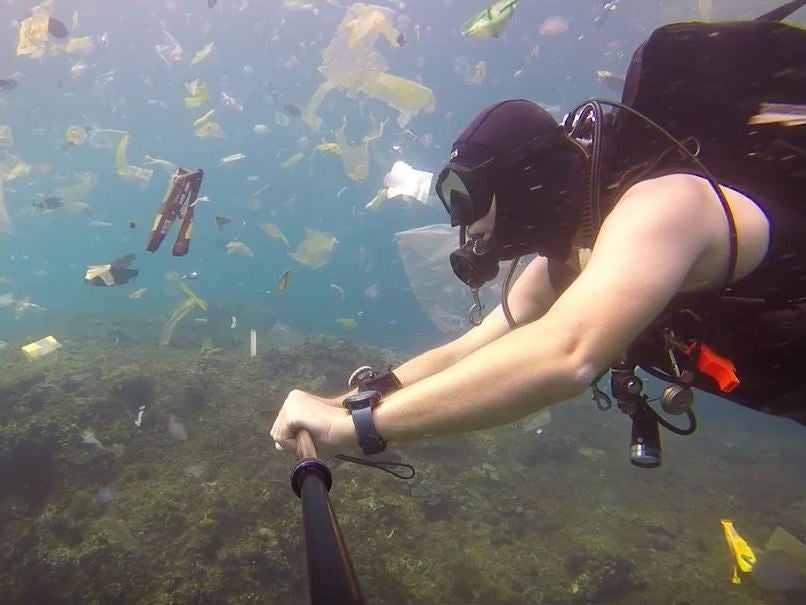Plastic litter in oceans has significantly increased since 1990s, study says
Researchers find plastic waste dating from 1965

Plastic litter in the world’s oceans has significantly increased since the 1990s, according to a new study.
Scientists from the Marine Biological Association and the University of Plymouth examined data collected over 60 years and 6.5m nautical miles for the research.
They concluded that there had been a “significant increase” in larger plastic items found in the ocean from 1957 to 2016.
Plastic objects such as bags, rope and netting were among those retrieved from oceans.
The earliest piece of plastic the researchers traced was a bag, found in 1965 off the northwest coast of Ireland.
Scientists used the Continuous Plankton Recorder (CPR), an unusual object used to collect plankton and survey the ocean, for the study.
The CPR has been towed behind vessels, such as ferries and and container ships, since 1931.
Its primary purpose is to collect plankton but over decades, pieces of litter including macroplastics and microplastics, have become entangled in it.
Microplastics are small plastic fragments, measuring under 5mm, which pollute the environment. Macroplastics are larger pieces, measuring over 2mm.

Publishing their findings in the journal Nature, the researchers said the amount of macroplastics in the ocean had significantly increased since the 1990s.
They noted “a peak” in macroplastic entanglement between 2009 and 2011.
There was also evidence of fewer plastic bags being retrieved since 2000 onwards.
“What is unique about this work is we have been able to demonstrate the increase in ocean plastic since the 1990s,”said Clare Ostle, the study’s lead author and a researcher at the Marine Biological Association.
“The Continuous Plankton Recorder survey data highlights the importance of maintaining long-term surveys, and their invaluable importance for retrospective analyses.”
Join our commenting forum
Join thought-provoking conversations, follow other Independent readers and see their replies
Comments
Bookmark popover
Removed from bookmarks